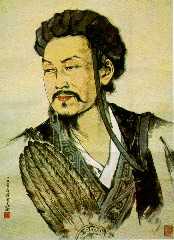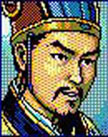- ½Ñ ¸¯
«G «e ¥X ®v ªí

( ^ Ķ ¦b ¤U )
English Translation Located Below

( ^ Ķ ¦b ¤U )
English Translation Located Below
®c¤¤©²¤¤¡AѬ°¤@Åé¡AÔF»@»N§_¡A¤£©y²§¦P¡CY¦³§@«Á¥Ç¬ì¤Î¬°©¾µ½ªÌ¡A©y¥I
¦³¥q½×¨ä¦D½à¡A¥H¬L°¡¤U¥©ú¤§ªv¡F¤£©y°¾¨p¡A¨Ï¤º¥~²§ªk¤]¡C
¨Í¤¤¡B¨Í¦³¢§ñ¤§¡B¶Oâü¡B¸³¤¹µ¥¡A¦¹¬Ò¨}¹ê¡A§Ó¼{©¾¯Â¡A¬O¥H¥ý«Ò²©Þ¥H
¿ò°¡¤U¡C·M¥H¬°®c¤¤¤§¨Æ¡A¨ÆµL¤j¤p¡A±x¥H«t¤§¡AµM¬I«á¦æ¡A¥²¯à»t¸ÉÂöº|¡A
¦³©Ò¼s¯q¡F±Nx¦VÃd¡A©Ê¦æ²Q§¡¡A¾åºZx¨Æ¡A¸Õ¥Î©ó©õ¤é¡A¥ý«ÒºÙ¤§¤ê¡u¯à¡v¡A
¬O¥H²³Ä³Á|Ãd¬°·þ¡C·M¥H¬°À礤¤§¨Æ¡A±x¥H«t¤§¡A¥²¯à¨Ï¦æ°}©M·ü¡AÀu¦H±o©Ò¡C
¿Ë½å¦Ú¡A»·¤p¤H¡A¦¹¥ýº~©Ò¥H¿³¶©¤]¡F¿Ë¤p¤H¡A»·½å¦Ú¡A¦¹«áº~©Ò¥H¶ÉÀZ¤]¡C
¥ý«Ò¦b®É¡A¨C»P¦Ú½×¦¹¨Æ¡A¥¼¹Á¤£¼Û®§µh«ë©ó®ÙÆF¤]¡C¨Í¤¤¡B©|®Ñ¡Bªø¥v¡B°Ñx¡A
¦¹±xs«G¦º¸`¤§¦Ú¤]¡AÄ@°¡¤U¿Ë¤§«H¤§¡A«hº~«Ç¤§¶©¡A¥ip¤é¦Ó«Ý¤]¡C
¦Ú¥»¥¬¦ç¡A°`¯Ñ©ó«n¶§¡Ae¥þ©Ê©R©ó¶Ã¥@¡A¤£¨D»D¹F©ó½Ñ«J¡C¥ý«Ò¤£¥H¦Ú
¨õ»À¡AµT¦ÛªP©}¡A¤TÅU¦Ú©ó¯óĪ¤§¤¤¡A¿Ô¦Ú¥H·í¥@¤§¨Æ¡F¥Ñ¬O·P¿E¡A¹E³\¥ý«Ò
¥HÅX¹£¡C«áȶÉÂСA¨ü¥ô©ó±Ñx¤§»Ú¡A©^©R©ó¦MÃø¤§¶¡¡Aº¸¨Ó¤G¤Q¦³¤@¦~¨o¡I
¥ý«Òª¾¦ÚÂÔ·V¡A¬GÁ{±Y±H¦Ú¥H¤j¨Æ¤]¡C¨ü©R¥H¨Ó¡A¦g©]¼~¶Ô¡A®£°U¥I¤£®Ä¡A¥H¶Ë
¥ý«Ò¤§©ú¡A¬G¤¤ë´çÃy¡A²`¤J¤£¤ò¡C¤µ«n¤è¤w©w¡A§L¥Ò¤w¨¬¡A·í¼ú²v¤Tx¡A¥_©w
¤¤ì¡A±fºÜ¾q¶w¡AÄc°£«Á¤¿¡A¿³´_º~«Ç¡AÁ٩󳣡F¦¹¦Ú©Ò¥H³ø¥ý«Ò¦Ó©¾°¡¤U
¤§Â¾¤À¤]¡C¦Ü©ó·r°u·l¯q¡A¶iºÉ©¾¨¥¡A«h§ñ¤§¡Bâü¡B¤¹¤§¥ô¤]¡CÄ@°¡¤U°U¦Ú¥H°Q¸é
¿³´_¤§®Ä¡A¤£®Ä«hªv¦Ú¤§¸o¡A¥H§i¥ý«Ò¤§ÆF¡CYµL¿³¼w¤§¨¥¡A«h¼®§ñ¤§¡Bâü¡B¤¹µ¥¡A
¥H¹ü¨äºC¡C°¡¤U¥ç©y¦Û½Ò¡A¥H¿ÔçÔµ½¹D¡A¹î¯Ç¶®¨¥¡A²`°l¥ý«Ò¿ò¶@¡A¦Ú¤£³Ó¨ü®¦
·P¿E¡C¤µ·í»·Â÷¡AÁ{ªí®÷ª_¡A¤£ª¾©Ò¤ª¡C
By Zhuge Liang (A.D. 228) 
Translated From the Chinese By Robert M. W. Tsou
^ Ķ¡R ¹Q ©s ªZ
Vassal2
Liang speaks: Our Late Emperor3,
while endeavoring in
the creation of the empire, perished midway to completion. Now the
Realm Under Heaven is divided three ways. The state of Yi
lies
weary and depleted. We have indeed arrived at a critical juncture
between viability and demise. Yet, our servants are tireless and our
soldiers are selfless in devotion to our country. Their allegiance
is simply
a reflection of their desire to reciprocate the Late Emperor's past
magnanimity and kindness through loyal servce to Your Majesty4.
Now Vassal must implore Your Majesty to widen your sagely audience
in order to honor the Late Emperor and to promote morale among
the resolute. Do not recklessly abdicate faith nor employ spurious
pretenses which may impede the path to honorable remonstrance.
The Royal Court and the Ministry5
of State are one and the
same. Rewards and punishments should be meted out equitably. To
demonstrate Your Majesty's enlightened rule, matters of criminal
guilt or innocence should be delegated to the judiciary for due
disposal. There should be no place for favoritism or inequality
under the law.
Among the courtiers, Kuo Yo-Zhi, Fei-Yi, and
Dong-Yun are all
loyal servants of pure and honorable intentions. They were chosen
especially by the Late Emperor to assist Your Majesty. Vassal
believes that matters of the Royal Court, whether momentous or
minuscule, are best conferred with them prior to implementation.
This will surely benefit to the avoidance of errors and omissions.
General Hsiang-Chong, possessor of a staid temperament and
extensive martial knowledge, who was commissioned in the past and
pronounced "capable" by the Late Emperor, is the majority choice
for the post of Chief of Staff. Vassal believes that he should
be
consulted in affairs of the military. Doing so will engender
fairness and harmony among the ranks. Embracing the virtuous and
eschewing the ignoble6
accounted for the prosperity of the early
Hans while embracing the ignoble and eschewing the virtuous
hastened the decline of the late Hans. During His Late Majesty's
lifetime, whenever we discussed this subject, he would often lament
the mistakes made by Emperors Huan and Ling7.
The Privy
Counselor, the Imperial Secretary, the Elder Emissary, and the
Security Advisor are all men of unswerving loyalty who will defend
our cause to the death. Should Your Majesty rely and confide in
them, then the days to Han's resurgence shall not be long indeed.
Vassal was but a mere commoner. Content to
farm in Nan Yang
and eke out a meager existence in this tempestuous times, I sought
no
preeminence among lords. His Late Majesty, undaunted by Vassal's
lowliness, thrice visited Vassal in the thatched hut to confer on
matters of national importance. Out of gratitude, Vassal decided to
dedicate myself to the service of the Late Emperor. Later, we were
met with destruction8
and Vassal assumed field command amidst
danger and hardship, in the face of defeat; alas, that was 21
years
ago! His Late Majesty knew that Vassal was prudent, so he entrusted
Vassal with the Great Task before his demise. Since accepting this
responsibility, Vassal has toiled days and nights lest the job be
wanting or fallen short of His Late Majesty's expectations. This is
why we crossed the Lu9
in May, venturing deeply to strike at the
Wild Territories. Now with the South peaceful and our troops
robust, it is time to call upon our forces again to reclaim the
Middle Plains of the north. Contributing my finite utmost, we shall
overcome and oust the treacherous tyrant10,
restore the rightful Han
heir and return our capital to its proper origin11.
Fulfillment of
these duties are indeed Vassal's way of repaying the Late Emperor
and affirming allegiance to Your Majesty. From hence forward,
matters of royal counseling regarding routine decision-making shall
be the charge of Yo-Zhi, Yi, and Yun, while the task of brigand12-
prosecution and national restoration shall rest upon Vassal. If my
goals are not met, then I shall accept fitting punishment in
appeasement of the Late Emperor's spirit. Likewise, if Yo-Zhi, Yi,
and Yun fail to provide wise counsel, then they, too, shall be duly
punished to expose their deficiencies. Finally, I beseech Your
Majesty to be ever self-reflective, to adopt the ways of the noble,
to heed the guidance of the sagacious, and to pursue unfailingly
the last will of our Late Emperor. To this end, Vassal is grateful
beyond words. On this eve of my departure afar, I tearfully submit
this petition, shaken and hardly realizing my own utterances.
(1). The war against Wei, launched by Zhuge Liang in 228 A.D.
(2). How a subordinate refers to himself before a
lord, used here in
lieu of the first person.
(3). Liu Bei, the first Emperor of the Shu-Han Dynasty.
(4). Liu Shan (Ah Dou), son of Liu Bei.
(5). Office of the Minister of State (Zhuge
Liang) and its staff.
(6). Also translates to men of base character or low morality.
(7). Two of the later Emperors of the Han Dynasty during whose
reign the nation started
its decline.
(8). Battle of Steepslope Bridge where Cao defeats
Liu Bei.
(9). River in southern China.
(10). The "Treacherous Tyrant" refers to Wei ruler Cao.
(11). The capital of the Western Han was in Chang An, later
it was
moved to Lo Yang
during the Eastern Han period.
(12). Collective term for the defenders of Wei.
![]() Link
to Oliver's and Facia's Page (dedicated to Romance of the Three
Kingdoms)
Link
to Oliver's and Facia's Page (dedicated to Romance of the Three
Kingdoms)